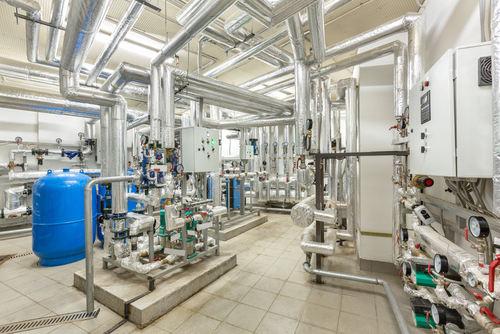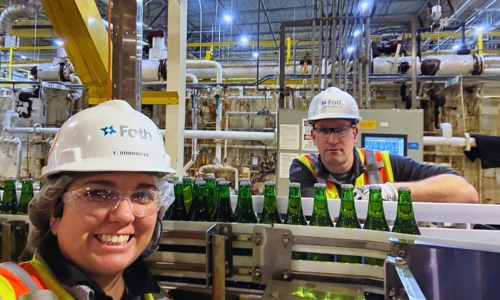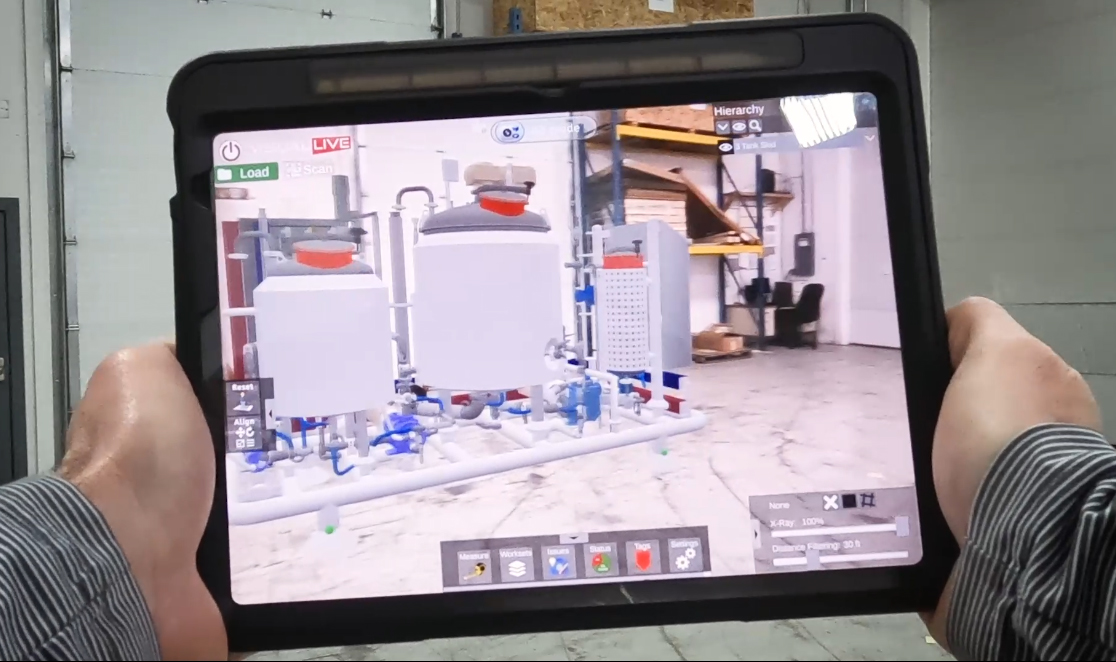
If you’re a beverage facility, a pulp and paper manufacturer, or a candy bar producer, chances are you’re operating your facilities today with process utilities designed decades ago. You may be facing CO2 shortages, inefficient heating systems, insufficient steam capacity, or a refrigeration system you’ve outgrown. Considering your end-to-end systems when making an upgrade can uncover a solution that produces an immediate return on your investment, while ensuring you’re making the best use of your space to accommodate future needs.
At Foth, our engineers and designers have years of experience in our clients’ industries. We bring our firsthand understanding of client needs and processes, insights into current technology, and knowledge of best practices to bear on client projects, including when it comes to addressing the myriad of challenges that result from aging process utilities and achieving ever more challenging sustainability goals.
Four Tips for Getting the Most Out of Your Process Utilities
1. Think Beyond Replacing Like-for-Like
A recent project on which Foth advised and supported implementation was for a beverage facility in Texas that needed a glycol cooler upgrade. The original solution was to replace the existing shell and tube heat exchangers like-for-like, as a straightforward option that was quick to execute and allowed the brewery to resume focus on operations.
When Foth assessed the beverage facility’s pressing need for a glycol cooler upgrade in conjunction with its infrastructure and future operating requirements, we put forth a solution to replace the existing system with plate and frame heat exchangers. Installing a new system allowed the site to raise the suction pressure of the ammonia, allowing for significantly improved ammonia compressor efficiency . Whereas a like-for-like replacement was a non-return on investment option, the plate and frame solution will save the beverage facility up to $400,000 a year in electricity costs and support their operations more sustainably into the future.
2. Find Opportunities in Short-Term Disruptions
Responding to market factors can uncover improvement opportunities that a manufacturer may not otherwise be forced to consider. Supply chain issues of CO2 have abounded since the start of the COVID-19 pandemic, which has forced some short-term shutdowns of brewing operations. While this is a major inconvenience and risk to business operations, Foth has been able to support its clients in implementing a better long-term solution of using nitrogen blends that reduces a brewery’s reliance on CO2 and produces immediate cost efficiencies. These nitrogen projects provide long-term economic benefit even when the short-term supply chain pressures are alleviated.
3. Don’t Base Long-Term Decisions on Short-Term Trends
Manufacturers rely on many inputs and commodities that are subject to significant price fluctuations. While it is important to understand trends, it is equally as critical not to over value the current state of volatile commodities, like fuel, when making decisions. Basing long-term decisions on current pricing that will most certainly change leads to poor overall business economics for the future.
4. Develop a Master Plan for Process Utilities
In running complex manufacturing operations, managers and operators face multiple and competing priorities. When an issue is identified with utilities, from power and compressed air to water and HVAC, it is compelling and often feels easier in the short term to fix the urgent issue without undertaking a comprehensive planning process. Taking the time to analyze current and future needs can be time effective and pays significant dividends down the road. Using a master plan provides clear direction and avoids short-term decisions that negatively impact site infrastructure and energy improvement goals.
At Foth, our clients benefit from our holistic systems thinking. Our preferred approach is to invest time at the beginning of a project to understand our client’s production and sustainability goals and identify future pain points and opportunities to enhance efficiency across all process utilities. Approaching solving today’s problems with an informed perspective on the future allows manufacturers to identify risks, avoid being caught off guard with unanticipated emergencies, find opportunities for integration that lead to improved efficiency, and understand how to make the best use of their space.
Understanding Today to Plan for Tomorrow
In addition to the challenges associated with aging utility systems, the effects of COVID-19 have introduced new, albeit hopefully temporary, difficulties to manage including commodity shortages and supply chain disruptions. Our goal is to help our clients see hidden potential in these market factors to develop solutions that are more innovative, cost effective, and sustainable than what may first come to mind.
We support our clients in developing a master plan that solves today’s problems while planning for the future. Technology is continuously improving, and innovative ideas are forthcoming. Our environment has shifted significantly in the time many manufacturers’ process utilities were first put in place, requiring us to understand our operating requirements, available technology, and advancements in processes to make the best decisions today that will serve us well tomorrow.
At Foth, we combine science, engineering, technology, and decades of experience to solve our clients’ toughest challenges. Our firm understanding of regulations, government and public utility rebates, as well as environmental permitting, gives our clients peace of mind that their project needs are covered. Contact us today to talk about how to get the most out of your process utilities.
Markets: Consumer Products, Food and Beverage, Pulp and Paper
Services: Distribution Logistics Technology, Engineering for Product Manufacturing
Related Insights
From Ideation to Realization: How Serial 1 Automation Accelerates Production Innovation
10.13.2022 | Joseph Spychalla




